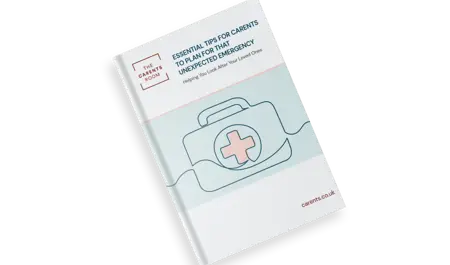

A new UK-wide poll has revealed a stark truth: one in three adults expect to become an unpaid carer for an ageing parent or loved one within the next decade. Yet almost half admit they wouldn’t know where to turn for support when that day arrives.
This growing reality points to what we at Carents call the unprepared generation: millions of adults who will suddenly find themselves balancing work, family, and the heavy responsibilities of caring for an elderly parent without a plan in place.
Why So Many Future Carents Are Unprepared
The survey, conducted among 2,000 UK adults, found:
-
62% worry about providing increasing levels of care for elderly parents as their health declines.
-
46% don’t know what services exist for people who can no longer leave their homes.
-
Only 39% feel confident they’ll know where to ask for help when the time comes.
With life expectancy rising and conditions such as dementia, COPD, and frailty becoming more common, the likelihood of adult children stepping into unpaid caring roles will only grow.
But most families are not planning ahead, and that creates three major risks.
The Risks of Carenting Without a Plan
1. Financial strain. Many carents are forced to reduce working hours or leave jobs altogether. Without advance financial planning, this can cause long-term instability. Read more in our Carents in the Workplace Report.
2. Emotional pressure. Two-thirds of adults say they already worry about the prospect of caring for parents. The transition is often sudden, stressful, and emotionally overwhelming, especially for those already managing children, partners, and careers.
3. Legal & practical blind spots. Families often delay conversations about power of attorney, care preferences, or housing until crisis strikes. Yet these are far harder decisions to make during an emergency.
Why Conversations Need to Happen Sooner
The poll also revealed that 43% of adults only expect to discuss care preferences after a major life event. That delay can make decision-making far more difficult.
Starting conversations early helps families:
-
Understand parents’ wishes in advance.
-
Explore financial and legal safeguards while options are open.
-
Reduce stress by avoiding rushed choices during a crisis.
How to Talk to Parents About Future Care
Conversations about care don’t need to be heavy or clinical. They can begin gently, with small questions and opportunities to listen. Key topics to explore include:
-
Care preferences: Would your parent want to stay at home for as long as possible, or would they be open to supported living later?
-
Lasting Power of Attorney (LPA): Appointing someone to make health and financial decisions ensures choices are respected, even if your parent cannot make them themselves.
-
Financial planning: Discuss how care might be funded whether through savings, pensions, benefits, or family support.
-
Daily living arrangements: Who could realistically help with shopping, medication, or transport in the future?
These conversations may feel uncomfortable at first, but they create clarity, prevent conflict, and give peace of mind to both parents and adult children. Read more about Planning Ahead and Talking About the Future.
Practical Resources to Help Carents Prepare
Even small steps can transform uncertainty into confidence. Carents.co.uk provides trusted resources to guide you through the journey:
- Emergency Planning Guide - to help you prepare for sudden changes in health or care needs.
- Dementia Care Guide - practical steps to support one of the most common caring journeys.
- COPD Toolkit - strategies for supporting a parent living with chronic respiratory illness.
- Medication Management Toolkit - simple systems to make daily care safer and less stressful.
By planning sooner and exploring these resources, you’ll be better equipped to handle the financial, emotional, and legal challenges of caring for an ageing parent.
A Call to Tomorrow’s Carents
The reality is that millions of us will become carents within the next decade. But that doesn’t mean we have to face it without support, or without a roadmap.
Carents exists to change the conversation: to provide the knowledge, tools, and community support that every future carer deserves. Because carenting isn’t just about coping, it’s about planning with purpose, and protecting the wellbeing of both you and your parents.
Lean on us, when they lean on you.
FAQs About Becoming a Carent
What is a Carent?
A Carent is an adult child who provides unpaid care for their elderly parent(s) or elderly relative(s).
What support is available for unpaid carers in the UK?
Unpaid carers can access local council services, NHS support, and charities like Carers UK. Carents.co.uk is your one-stop shop for those looking after elderly parents.
When should I start talking to my parents about future care?
It’s best to start before a health crisis. Early conversations about preferences, finances, and legal safeguards like LPA make caring transitions smoother.
How can I prepare financially to be a carer?
Plan for possible changes in income, research Carer’s Allowance or benefits, and discuss how care might be funded through savings or pensions.
What are the biggest challenges for unpaid carers?
The most common challenges include emotional strain, financial pressure, time management, and knowing where to access reliable support.
- Share on Facebook
- Share on X
- Share on LinkedIn





